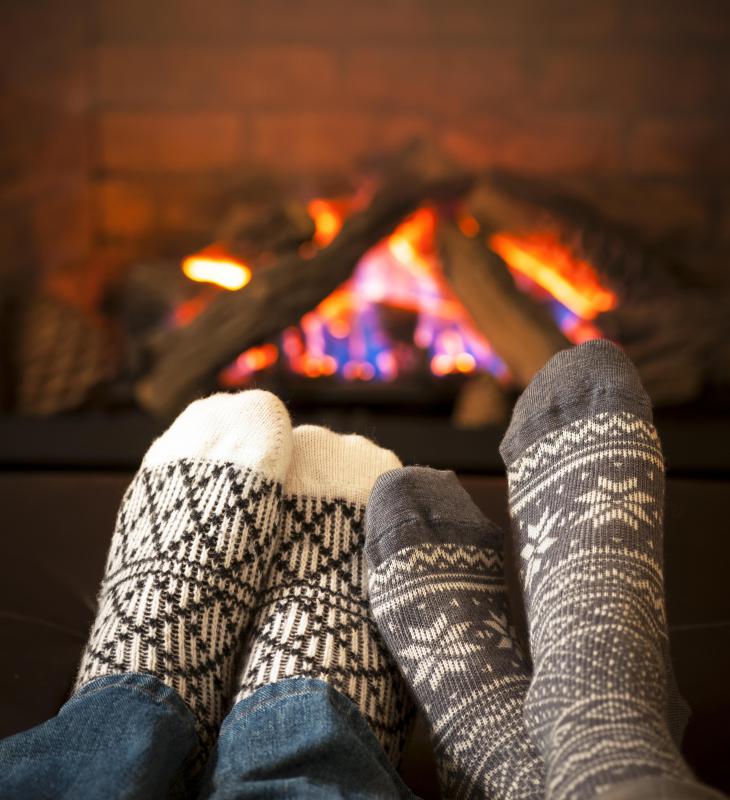At AllThingsNature, we're committed to delivering accurate, trustworthy information. Our expert-authored content is rigorously fact-checked and sourced from credible authorities. Discover how we uphold the highest standards in providing you with reliable knowledge.
What are Merino Sheep?
Merino sheep are a type of sheep bred primarily for wool. There are several different strands of merino sheep, each with slightly different characteristics. Varieties of the breed are raised all over the world, with significant populations in Australia, New Zealand, and Spain. Merino sheep were originally bred in Spain; in fact, it was illegal to export them until the 18th century.
Like many breeds, merino sheep are usually good foragers. Rams do not often strike, particularly if they are of the Australian poll variety. Merinos also have a very long productive life, sometimes living for up to 12 years. These qualities, among others, make merinos pleasant and profitable to raise on small farms where sufficient attention can be paid to the sheep.

Merino ewes give birth once a year, typically to one or two lambs. When sheep had to be bred using natural methods, it was difficult to consolidate the very best of the merino breed in one location. Sheep were spread out over a variety of continents, meaning that the best rams could not always be mated to the best ewes. With artificial insemination and better quality identification methods, the merino breed continues to improve rapidly.

Most varieties are smooth, or nearly so, but some have heavy and obvious wrinkles in their skin. Due to selective breeding, the majority of merino sheep are white or off-white in color, although colored lambs are still occasionally born. Some farmers specifically aim to raise colored merinos so that naturally colored textiles may be produced. A black sheep in particular is now prized for its unique wool.
The wool of most merino sheep is often considered exceptionally fine, as it is strong, soft, and has unique characteristics among fibers. Typically, merino wool is crimped and has a diameter of less than 24 microns. Merino sheep can produce fibers as fine as 10 microns, although this is usually not on the entire fleece. Fine merino fibers are also sometimes blended with other fibers such as alpaca or cashmere during production for luxurious yarns.
Merino wool is popular in many clothing items, particularly those that are intended for outdoor athletic activities. The wool wicks away moisture, stays warm when wet, and has anti-bacterial properties. Merino socks are particularly popular, because these qualities are highly valuable in footwear. Other items, particularly those that are worn against the skin, also make use of these attributes. Items made of merino generally perform better than less expensive synthetic counterparts, and are thus often considered the best available on the market.
Frequently Asked Questions
What are Merino Sheep?
Merino sheep are a breed renowned for their fine, soft wool, which is highly prized in the textile industry. Originating from Spain, these sheep are now found worldwide, with significant populations in Australia, which leads in global Merino wool production. Merino wool's unique properties, such as excellent insulation and moisture-wicking, make it a favorite for high-quality garments.
Why is Merino wool considered superior to other types of wool?
Merino wool fibers are exceptionally fine and soft, making them less itchy and more comfortable against the skin than coarser wools. Its natural elasticity allows for garments that maintain shape and resist wrinkles. Additionally, Merino wool is known for its breathability, moisture-wicking properties, and ability to regulate body temperature, making it versatile for various climates.
How are Merino sheep raised and cared for?
Merino sheep are typically raised on extensive grazing systems, where they can roam and feed on natural grasslands. Farmers prioritize their health and welfare, ensuring access to clean water, adequate nutrition, and protection from extreme weather and predators. Shearing is an essential care practice, usually done annually, to prevent overheating and mobility issues in the sheep.
What environmental impacts are associated with Merino wool production?
Merino wool production, like all animal-derived products, has environmental impacts, including land and water use, as well as methane emissions from the sheep. However, wool is a renewable resource, and its durability means products have a longer lifespan, potentially reducing waste. Sustainable farming practices and advancements in land management are helping to mitigate these impacts.
Can Merino wool be considered an ethical product?
The ethics of Merino wool production depend on the practices of individual farmers and the standards they adhere to. Ethical considerations include the treatment of the sheep, the sustainability of farming practices, and the avoidance of mulesing (a controversial practice to prevent flystrike). Ethically sourced Merino wool products often carry certifications from organizations that ensure animal welfare and sustainable production.
What types of products are made from Merino wool?
Merino wool is used in a wide range of products, from high-performance athletic wear to luxury fashion items. Its versatility makes it ideal for base layers, socks, sweaters, hats, and scarves. Merino's natural properties also lend themselves to bedding and insulation materials, showcasing the fiber's adaptability across different market segments.
AS FEATURED ON:
AS FEATURED ON:












Discussion Comments
I saw some merino sheep for sale in the newspaper the other day.
I thought to myself, who would buy sheep out of the newspaper?
But I guess stranger things have happened!
I have some land that was formerly used for cattle grazing and I have been considering raising merino sheep. How difficult and expensive is it? Do they have any other value besides their wool?
I found it at a secondhand store almost 5 years ago and it has been my standard winter coat ever since. It never seems to show signs of wear. With any luck I will be able to use it for another 5 years.
Post your comments